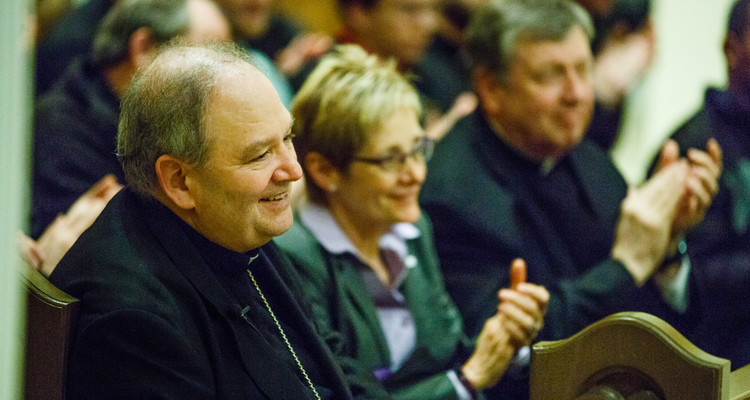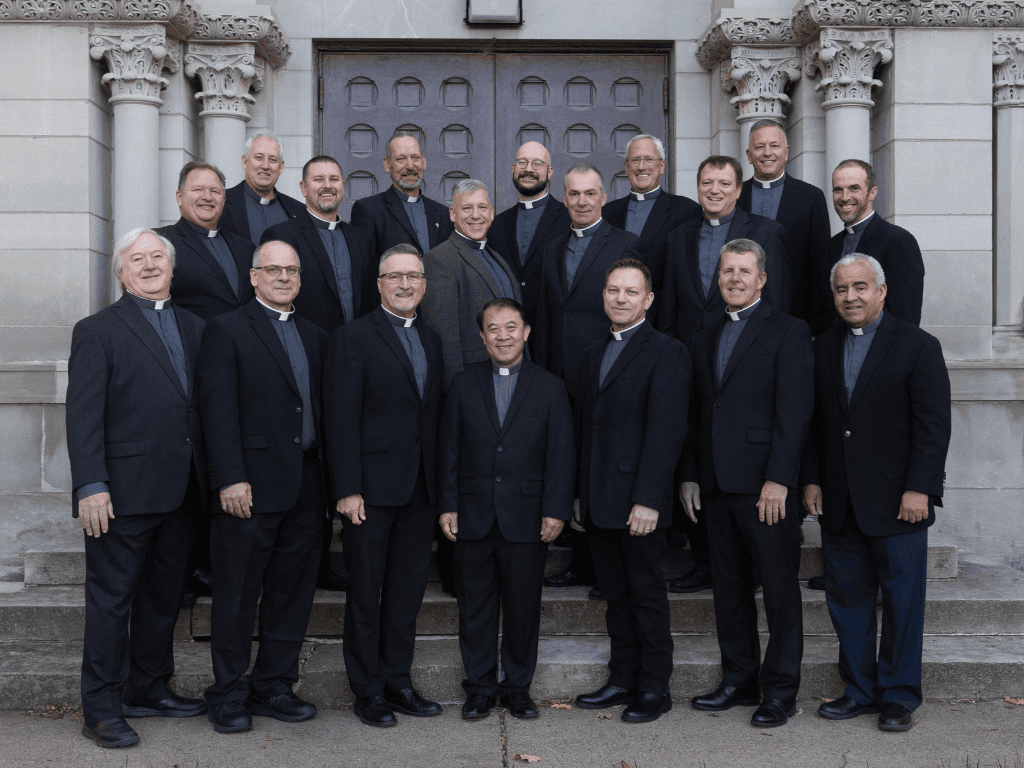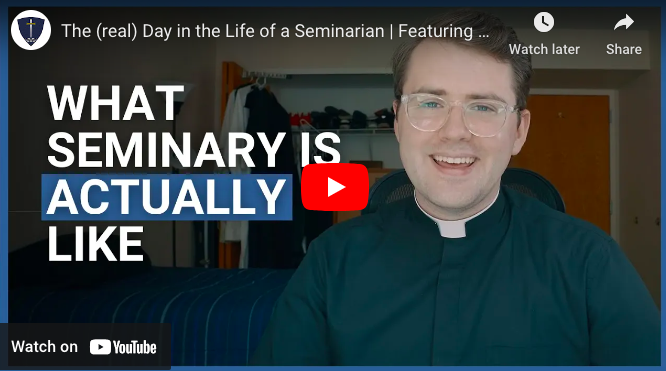Bernard Hebda, recently appointed by Pope Francis as the archbishop of the Archdiocese of St. Paul and Minneapolis, will be installed May 13. He came to campus last week to share his thoughts about the pope’s successful leadership style and the lessons that can be learned from it.
The event was hosted by Tommie Catholic, a new collaboration among Campus Ministry, Catholic Studies and St. Paul’s Outreach.
Before being appointed archbishop, Hebda served as apostolic administrator of the Archdiocese of St. Paul and Minneapolis since last June, and coadjutor archbishop of the Archdiocese of Newark, New Jersey.
As an introduction to his campus talk, he said, “For those who want to be leaders in their faith, leaders in their field, you want to do something to make a difference and leadership is part of that.”
Pope Francis’ leadership style has been discussed in several publications, such as Forbes, The Wall Street Journal and The Economist. What is it about the pope that has captured the attention of such leadership experts? In his talk, Hebda shared his insights on what we can learn about leadership from the pope.
Address major concerns through honest communication
In many of his appearances, the pope has referred to caring for the poor, addressing climate change and other pressing matters. He has called synods in which he spoke about issues that would make others uncomfortable. “But there’s a confidence in the pope’s faith, so he’s willing to make difficult choices and confront tough issues,” Hebda said.
A leader needs to articulate their vision in a way that triggers a deep desire in people to contribute their talents to achieving a goal or solving problems. That’s where communication comes into play. “The pope is a master of communication,” Hebda said. He’s not afraid of repeating key ideas so people understand. The pope has said repeatedly, “I want a poor church and a church for the poor.” Coming from the man who took the name of St. Francis of Assisi because of his work for peace and the poor, the statement seems natural and genuine.
Meet people where they are
You can’t get more personal than getting out and meeting people where they live, work or spend time and that’s what Pope Francis does. He is willing to be vulnerable and sometimes shuns security. He’s not afraid of having contact with others. For example, he used public transportation when visiting Buenos Aires because it was an opportunity to hear what people were saying. When a well-known critic of the Vatican was ill, the pope visited him in the hospital. And other people have received phone calls directly from the pope. The pope has been known to show up for a meeting with his brief case in hand, and he’s there to listen to people, not give direction. It’s this personal touch that makes him believable as a caring leader.
The pope doesn’t speak about “poverty”; he speaks about “the poor.” “It’s always about the human person,” Hebda said. “As a leader we need to be aware of those who will be touched by our decisions. We have to act out of love for the individual person.
Honesty, transparency, humility
Some of the attributes that set Pope Francis apart as a leader are his honesty, transparency and humility. He has recognized his own sinfulness, his need for assistance and his need for mercy. Hebda described an event in which 30,000 people were in audience with the pope at the Vatican. When the pope said he was a sinner, St. Peter’s Square went wild. The people reacted, “not because they have a pope who’s a sinner, but because they have a pope who knows he’s a sinner,” Hebda said. The pope’s awareness of his own limitations leads to two different attributes: being able to delegate and being open to consultation.
Delegate and consult others
Early in his pontificate, Pope Francis said that he made decisions abruptly and by himself in his early life as a priest. He explained that now he reaches out to others and entrusts them with tasks. “To those delegates, they’d have to make a really big mistake to face rebuke from the pope. If we want to be leaders, we really have to delegate, to respect the other person,” Hebda said.
Even when it’s difficult; even when it’s time consuming; there’s a benefit to listen to criticism. “In a university setting, we engage with people who have different views than us,” Hebda said. “It allows us to go deeper in our own understanding, our own belief, and developing those skills for dialogue. If each person has value, then their opinion has some value.”
Let your life mirror your values
Be sure your life is consistent with your values. “At the heart of his relationship style is the pope’s relationship with Christ,” Hebda said. “The pope reflects on Christ’s life and the priorities that Christ teaches. How can you be an authentic leader? Learn about our God and discover your own identity. We benefit from knowing that we’re the servants rather than master builder. In our own lives, we need to know that God loves us and has come to save us. We have to be rooted in prayer, rooted in Scripture, so that we know that,” he said.







